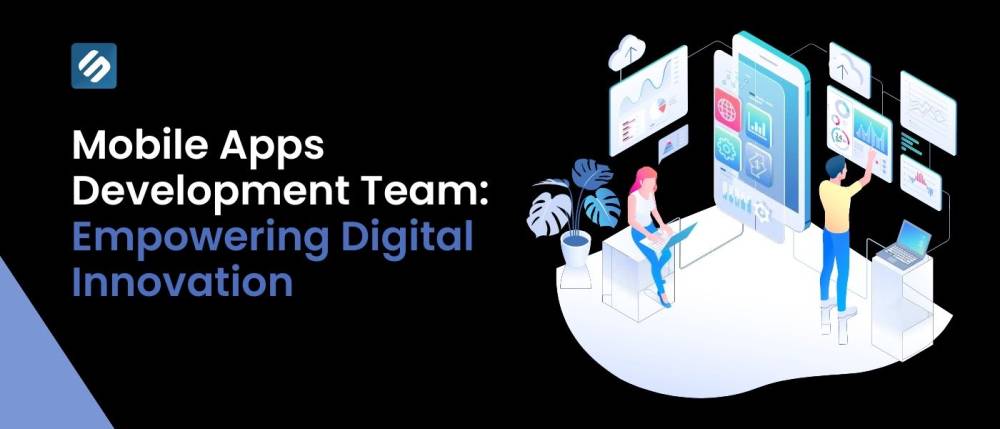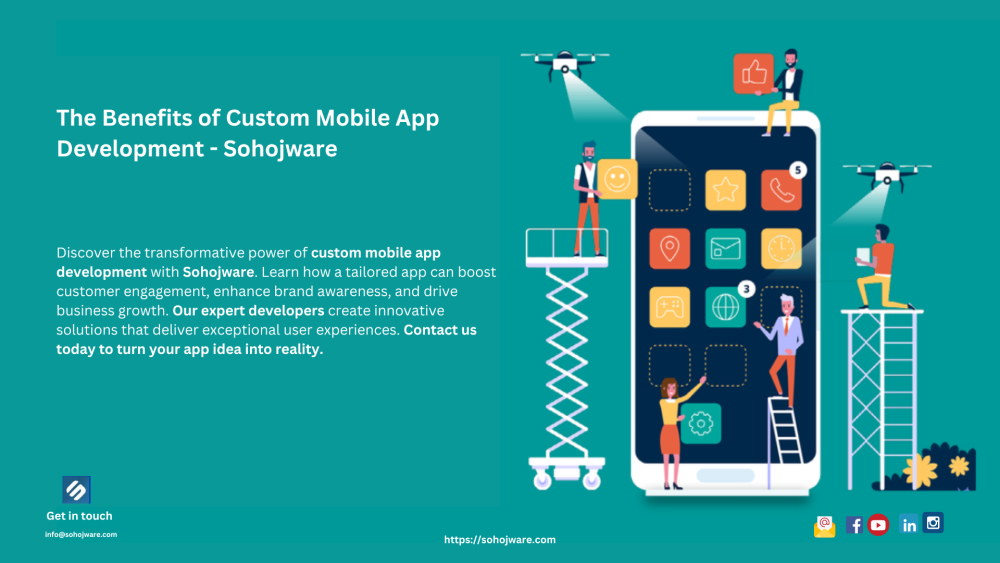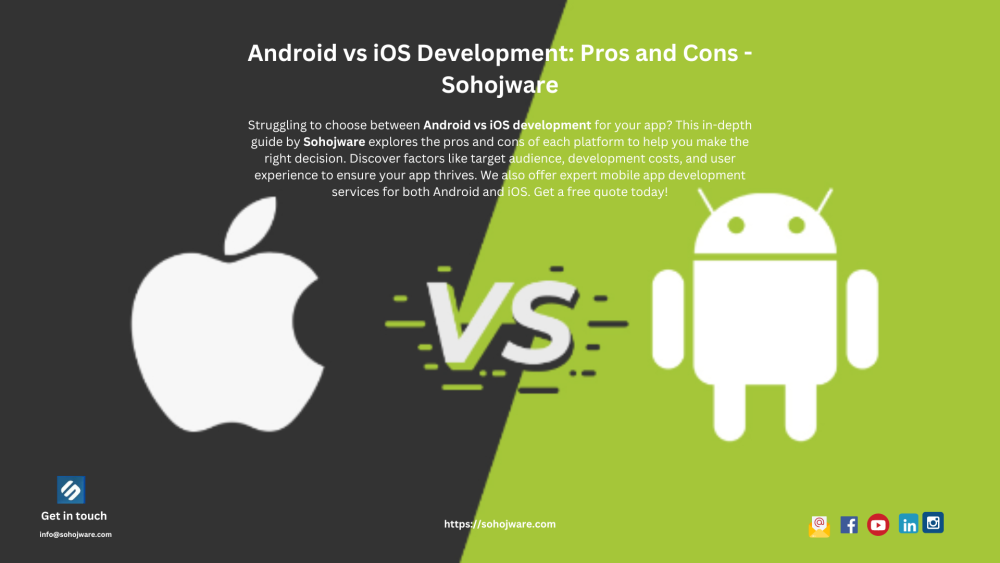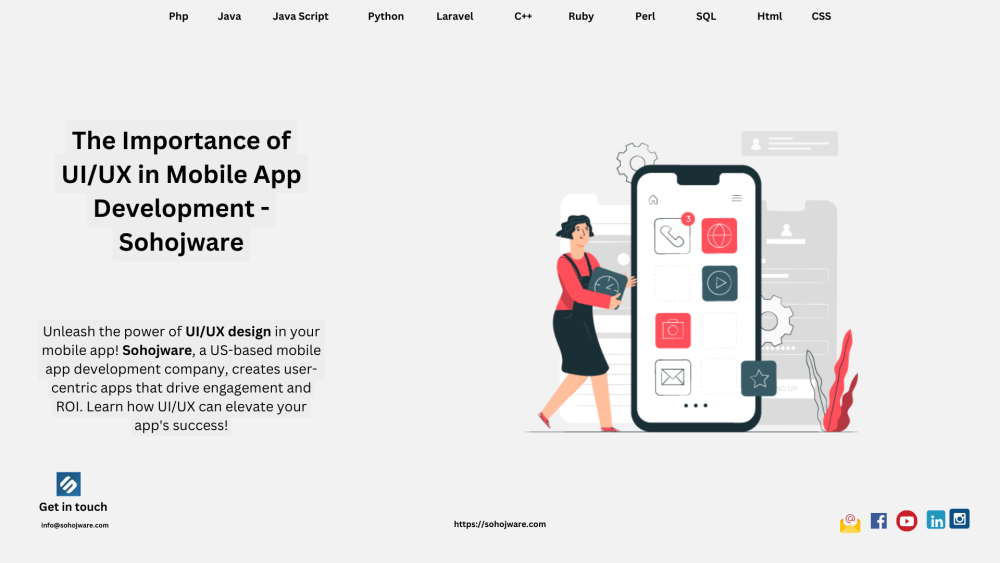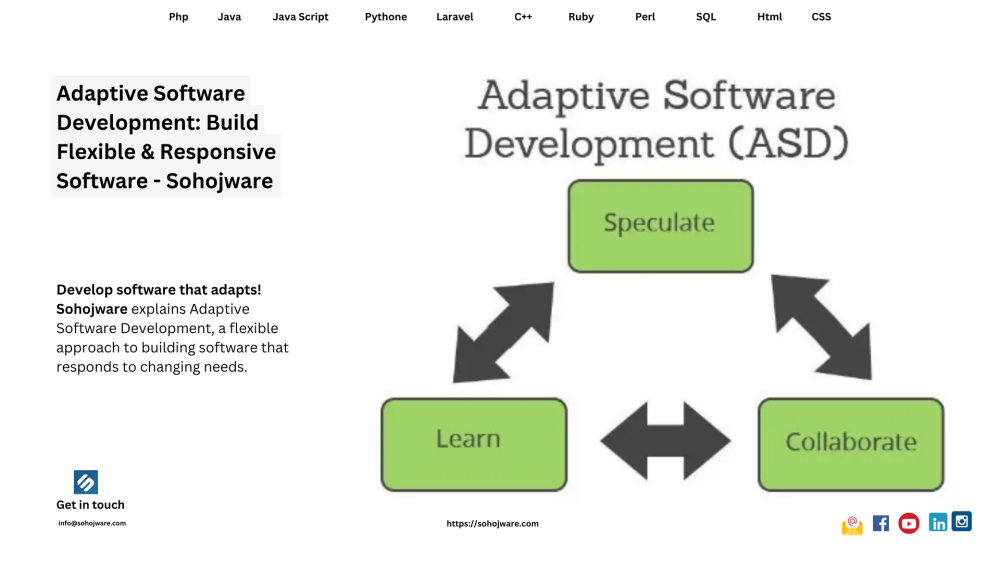In today's digital age, mobile applications have become an integral part of our lives. From social networking to online shopping, mobile apps offer convenience, connectivity, and countless possibilities. Behind every successful mobile app, there is a dedicated team of professionals working tirelessly to bring ideas to life.
In this article, we will explore the world of mobile apps development teams, their role in creating exceptional apps, and the key factors that contribute to their success.
Table of Contents
| Sr# | Headings |
|---|---|
| 1. | What is a Mobile Apps Development Team? |
| 2. | Roles and Responsibilities |
| 3. | The Collaborative Workflow |
| 4. | Expertise and Skillsets |
| 5. | Tools and Technologies |
| 6. | User-Centric Design |
| 7. | Agile Development Methodology |
| 8. | Quality Assurance and Testing |
| 9. | Cross-Platform Development |
| 10. | Continuous Improvement |
| 11. | Project Management |
| 12. | Communication and Coordination |
| 13. | Ensuring Security |
| 14. | Cost Considerations |
| 15. | Conclusion |
1. What is a Mobile Apps Development Team?
A mobile apps development team is a group of skilled professionals who collaborate to design, develop, and maintain mobile applications. They work together to transform ideas into functional and user-friendly apps that cater to the needs and preferences of the target audience.
This team typically consists of various roles, each contributing their expertise to different aspects of the app development process.
2. Roles and Responsibilities
2.1 Project Manager: The project manager oversees the entire app development process, ensuring effective coordination among team members, timely delivery of milestones, and adherence to project timelines.
2.2 UI/UX Designer: The UI/UX designer focuses on creating an appealing and intuitive user interface, ensuring a seamless and engaging user experience.
2.3 Front-end Developer: Front-end developers are responsible for coding the visual elements of the app using programming languages such as HTML, CSS, and JavaScript. They work closely with designers to translate the UI/UX designs into functional interfaces.
2.4 Back-end Developer: Back-end developers handle the server-side programming, database management, and business logic implementation. They ensure the app's functionality, performance, and security.
2.5 Mobile App Developer: Mobile app developers specialize in building native or cross-platform apps for different mobile operating systems, such as iOS and Android. They have expertise in programming languages like Swift, Java, or React Native.
2.6 Quality Assurance Tester: Quality assurance testers rigorously test the app to identify and resolve any bugs, glitches, or usability issues. They ensure the app meets the highest quality standards before release.
2.7 DevOps Engineer: DevOps engineers focus on streamlining the development, deployment, and maintenance processes. They use automation and continuous integration tools to enhance efficiency and collaboration within the team.
3. The Collaborative Workflow
Successful mobile app development relies on a collaborative workflow that encourages effective communication, creativity, and efficient task management. The development team follows a structured approach that involves the following steps:
3.1 Idea Generation: The team brainstorms ideas, considering market trends, user needs, and business goals. They identify unique selling points and define the app's core features.
3.2 Design and Prototyping: The UI/UX designer creates wireframes and prototypes to visualize the app's layout, navigation, and interactions. The team collaborates to refine the design and ensure it aligns with the app's goals.
3.3 Development: Front-end and back-end developers start coding the app, implementing the design and integrating the necessary functionalities. They follow industry best practices and coding standards to ensure scalability and maintainability.
3.4 Testing and Quality Assurance: The QA tester conducts thorough testing to identify any bugs, performance issues, or usability concerns. They work closely with the development team to address and resolve these issues promptly.
3.5 Deployment and Release: Once the app passes the testing phase, it is prepared for deployment. The DevOps engineer manages the deployment process, ensuring a smooth release and integration with app stores or distribution platforms.
3.6 Maintenance and Updates: After the app's release, the development team continues to monitor its performance, gather user feedback, and release updates or bug fixes. They strive to enhance the app's functionality and address any evolving user needs.
4. Expertise and Skillsets
A proficient mobile apps development team possesses a diverse set of skills and expertise. Some of the key skills include:
- Proficiency in programming languages such as Swift, Java, Kotlin, or React Native.
- Strong knowledge of mobile app development frameworks and libraries.
- Familiarity with front-end development languages like HTML, CSS, and JavaScript.
- Experience in back-end development, including server-side programming and database management.
- UI/UX design skills to create visually appealing and user-friendly interfaces.
- Quality assurance and testing expertise to ensure app stability and usability.
- Familiarity with Agile methodologies and project management tools.
- Continuous learning to stay updated with the latest trends and technologies in mobile app development.
5. Tools and Technologies
To streamline the app development process and ensure efficiency, mobile apps development teams utilize various tools and technologies. These include:
- Integrated Development Environments (IDEs) such as Xcode (for iOS) and Android Studio (for Android) for coding and debugging.
- Collaboration and project management tools like Jira, Trello, or Asana for task tracking and team coordination.
- Version control systems like Git or SVN for efficient code management and collaboration.
- Testing frameworks and tools such as Appium or XCTest for automated testing.
- Design and prototyping tools like Sketch, Adobe XD, or Figma for creating visual assets and interactive prototypes.
- Continuous integration and deployment (CI/CD) tools such as Jenkins or Bitrise for automating the build, test, and deployment processes.
- Analytics and monitoring tools like Firebase or Google Analytics to gather insights about app usage, user behavior, and performance metrics.
6. User-Centric Design
User-centric design is a fundamental aspect of mobile app development. A mobile apps development team focuses on understanding the target audience and designing an app that meets their needs and expectations.
By conducting user research, creating user personas, and gathering feedback, the team ensures that the app provides a seamless and intuitive experience. They emphasize factors such as ease of use, clear navigation, appealing visual design, and efficient interactions to enhance user satisfaction and engagement.
7. Agile Development Methodology
Agile development methodology is widely adopted by mobile apps development teams due to its flexibility, iterative approach, and emphasis on customer collaboration. This methodology promotes adaptive planning, continuous feedback, and incremental development.
The team works in sprints, delivering small increments of working software at regular intervals. This allows for faster feedback, quick adjustments, and ensures that the app aligns with evolving user needs and market trends.
8. Quality Assurance and Testing
Quality assurance and testing are critical stages in mobile app development. The development teamensures that the app undergoes rigorous testing to identify and resolve any functional, performance, or usability issues. The QA team follows a comprehensive testing approach, including:
- Functional Testing: Verifying that all app features and functionalities work as intended.
- Performance Testing: Assessing the app's performance under different conditions to ensure optimal speed and responsiveness.
- Compatibility Testing: Testing the app on various devices, screen sizes, and operating systems to ensure compatibility.
- Usability Testing: Evaluating the app's user-friendliness, ease of navigation, and overall user experience.
- Security Testing: Identifying vulnerabilities and ensuring the app's compliance with security best practices.
- Regression Testing: Re-testing previously developed and tested functionalities to ensure new changes do not introduce issues.
By conducting thorough testing and quality assurance measures, the team aims to deliver a robust and bug-free app to the users.
9. Cross-Platform Development
With the proliferation of mobile devices and operating systems, cross-platform development has gained significant importance. Mobile apps development teams leverage frameworks like React Native or Flutter to build apps that can run on multiple platforms.
This approach allows for code reusability, reduced development time, and cost-effectiveness. By adopting cross-platform development, teams can reach a broader audience and ensure a consistent user experience across different devices.
10. Continuous Improvement
A successful mobile apps development team recognizes the importance of continuous improvement. They actively seek feedback from users, analyze app performance metrics, and gather insights to identify areas for enhancement.
By listening to user feedback, addressing bugs and issues promptly, and releasing regular updates, the team ensures that the app remains relevant, competitive, and aligned with user expectations.
11. Project Management
Efficient project management is crucial for the success of a mobile app development team. The project manager plays a pivotal role in planning, organizing, and coordinating the various aspects of the development process.
They create project timelines, allocate resources, and facilitate effective communication among team members. With the help of project management tools, the team can track progress, manage tasks, and ensure timely delivery of milestones.
12. Communication and Coordination
Effective communication and coordination are vital for seamless collaboration within a mobile apps development team. Regular team meetings, stand-ups, and status updates foster transparency and alignment.
Additionally, communication channels such as instant messaging platforms and project management tools enable quick and efficient information exchange. By fostering a culture of open communication, the team can address challenges, share ideas, and work cohesively towards app development goals.
13. Ensuring Security
Security is a critical concern in mobile app development. The development team follows industry best practices to ensure the app's security and protect user data. They implement measures such as data encryption, secure authentication, and adherence to privacy regulations like GDPR or CCPA.
Regular security audits, vulnerability assessments, and penetration testing help identify and mitigate potential risks, ensuring that the app maintains a high level of security.
14. Cost Considerations
Developing a mobile app involves cost considerations, and the development team strives to optimize resources without compromising on quality. They carefully plan and allocate budget for development, testing, design, and maintenance activities.
By leveraging cost-effective development frameworks, tools, and efficient project management practices, the team aims to deliver value within the allocated budget.
15. Conclusion
In conclusion, a mobile apps development team is the driving force behind the creation of innovative and user-friendly mobile applications. Through their collaborative efforts, expertise, and adherence to industry best practices, they transform ideas into functional and engaging apps.
From conceptualization to deployment, the team ensures that the app meets user needs, aligns with market trends, and delivers a seamless user experience.
By staying updated with the latest technologies and continuously improving their processes, mobile apps development teamscontinue to push the boundaries of digital innovation.
FAQs (Frequently Asked Questions)
What qualifications and skills are required to be a part of a mobile apps development team?
To be a part of a mobile apps development team, individuals should have a strong understanding of programming languages such as Swift, Java, or React Native. Proficiency in UI/UX design, knowledge of front-end and back-end development, familiarity with testing and quality assurance processes, and experience with project management methodologies are also valuable skills.
How long does it take to develop a mobile app?
The time required to develop a mobile app depends on various factors, including the complexity of the app, desired features, team size, and project management approach. Generally, it can take several weeks to several months to develop a fully functional mobile app.
What is the difference between native and cross-platform app development?
Native app development involves building separate versions of the app for different operating systems (e.g., iOS and Android) using their respective programming languages. Cross-platform app development, on the other hand, allows developers to build a single codebase that can run on multiple platforms.
This approach offers time and cost savings but may have some limitations in terms of performance or access to certain platform-specific features.
How do mobile apps development teams ensure app security?
Mobile apps development teams prioritize app security by implementing measures such as data encryption, secure authentication, and adherence to industry standards and regulations. Regular security assessments, audits, and testing are performed to identify vulnerabilities and address them promptly.
What happens after the app is released?
After the app is released, the development team continues to monitor its performance, gather user feedback, and release updates to address any issues or introduce new features. This ongoing maintenance and support ensure the app remains relevant and meets the evolving needs of the users.
In summary, a mobile apps development team plays a crucial role in creating mobile applications that empower digital innovation. Through their expertise, collaboration, and commitment to quality, they bring ideas to life and deliver seamless user experiences.
Whether it's designing intuitive interfaces, writing efficient code, or ensuring app security, these teams are at the forefront of driving mobile app development forward.
